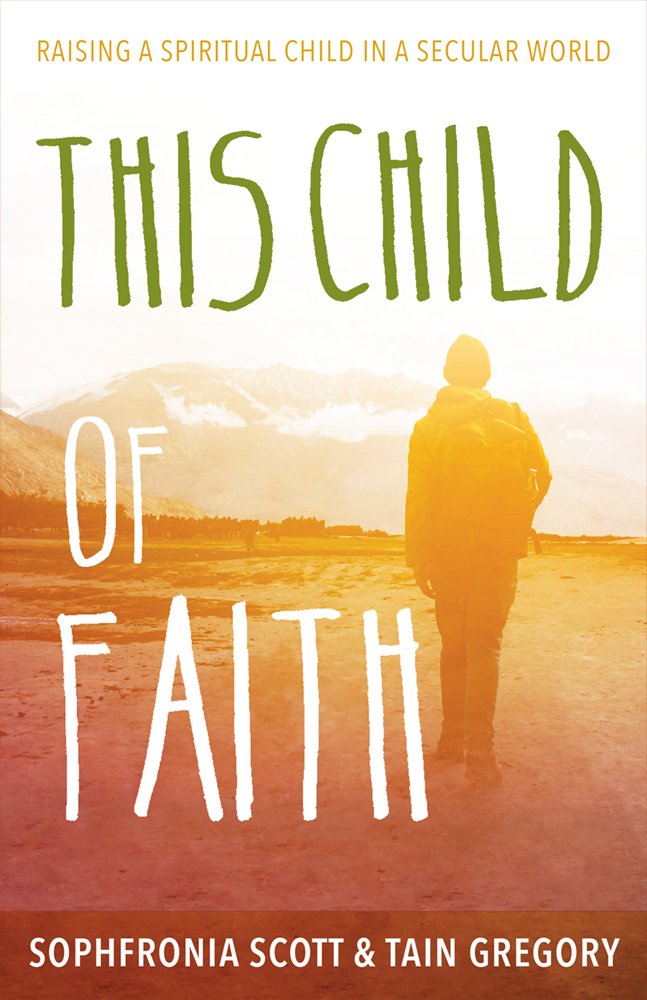In January 2011, my husband, son and I went to church for the first time. We’d chosen an Episcopal parish for our potential spiritual home. At the communion rail, I tried to get Tain, then 6 years old, to dip his wafer into the wine, but he wanted to chew on the morsel dry and then sip from the cup. A woman lowered the silver chalice to his lips. Tain tasted the wine and recoiled. He didn’t spit it out — a relief — but his face exploded with disgust, and he rose from the kneeling cushion with his mouth open, his tongue hanging out. My husband took him to the bathroom to wash away the sting.
Already I was wondering what we’d gotten ourselves into.
We were there because I had jumped on Tain’s innocent query, “What’s Sunday school and can I go?”
“Yes!” I said. “What a great idea! We’ll all go!”
I know personal faith is important, and I wanted Tain to understand his own. But let’s not kid ourselves: developing a spiritual life for your child in this boisterously secular world is kind of like being Noah building the ark. You have the feeling people are looking at you strangely. What do you need that for? That thing is huge, unwieldy, unnecessary. What a waste of time!
There’s little to counteract this attitude — especially when Sundays are taken up with sports and homework. The concept of Sabbath went out the window long ago. But psychologist Lisa Miller insists there is scientific support for raising children with religion. The research in her book The Spiritual Child showed that children who have “a positive, active relationship to spirituality are…”
Still, the secular world presses in. Building that ark can feel like a quixotic endeavor. But here’s the thing:
Eventually, it will rain. And for my family, it fell torrentially.
Nearly two years after that first communion, Tain was sitting in his third-grade classroom in Sandy Hook Elementary when a gunman blasted his way into the building and killed 26 adults and children — including Tain’s godbrother, Ben. I barely have words for the grief that washed over us. We lived in an ocean of tears. I thought my heart would turn to stone, and I would sink forever.

One night, not long after the tragedy, I was putting Tain to bed, and I asked how he was doing, how he was feeling about Ben. I wasn’t sure if this was the right thing to ask, and I didn’t know what he would say. But he looked at me, his brown eyes wide with wonder.
“Mama, I just have the feeling I’m going to see Ben again. He’s going to come down from heaven, and he’s going to be here with all of us.”
“Yes,” I told him. “I think you’re right.”
I realized this is what faith does: It provides buoyancy, allowing you to rise to the surface and not drown in grief. In our ark we have a community including our pastor, family and friends who support us and affirm this sense of grace and God’s message that says, as the Christian writer Frederick Buechner put it, “Here is the world. Beautiful and terrible things will happen. Don’t be afraid. I am with you.”
I believe all children have some connection to a higher power. It’s just a matter of encouraging them to know it is real and giving them a space to explore it. But even so, I was surprised by how quickly Tain grasped it and could call upon his faith as a source of strength and comfort.
I know many parents are at a loss as to how to help their children develop faith, especially if their own is wanting. All I can suggest is this: begin. Whatever your religion or spiritual orientation, just start walking the path. You’ll see right away it’s neither straight nor perfect. But in a world that does little to prepare us for devastating loss nor for appreciating life’s light and joy, it’s a path that makes sense.
More Must-Reads from TIME
- Cybersecurity Experts Are Sounding the Alarm on DOGE
- Meet the 2025 Women of the Year
- The Harsh Truth About Disability Inclusion
- Why Do More Young Adults Have Cancer?
- Colman Domingo Leads With Radical Love
- How to Get Better at Doing Things Alone
- Michelle Zauner Stares Down the Darkness
Contact us at letters@time.com